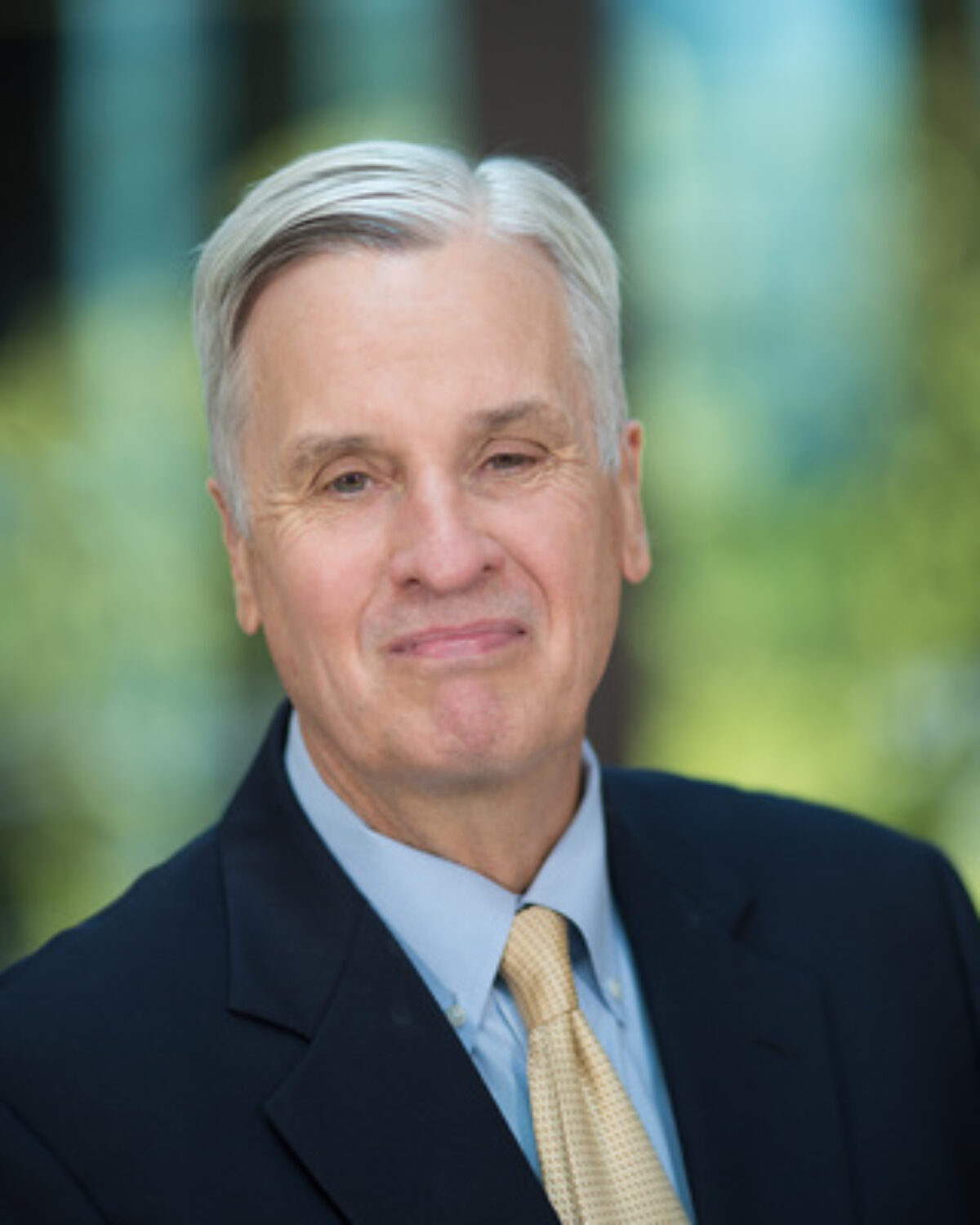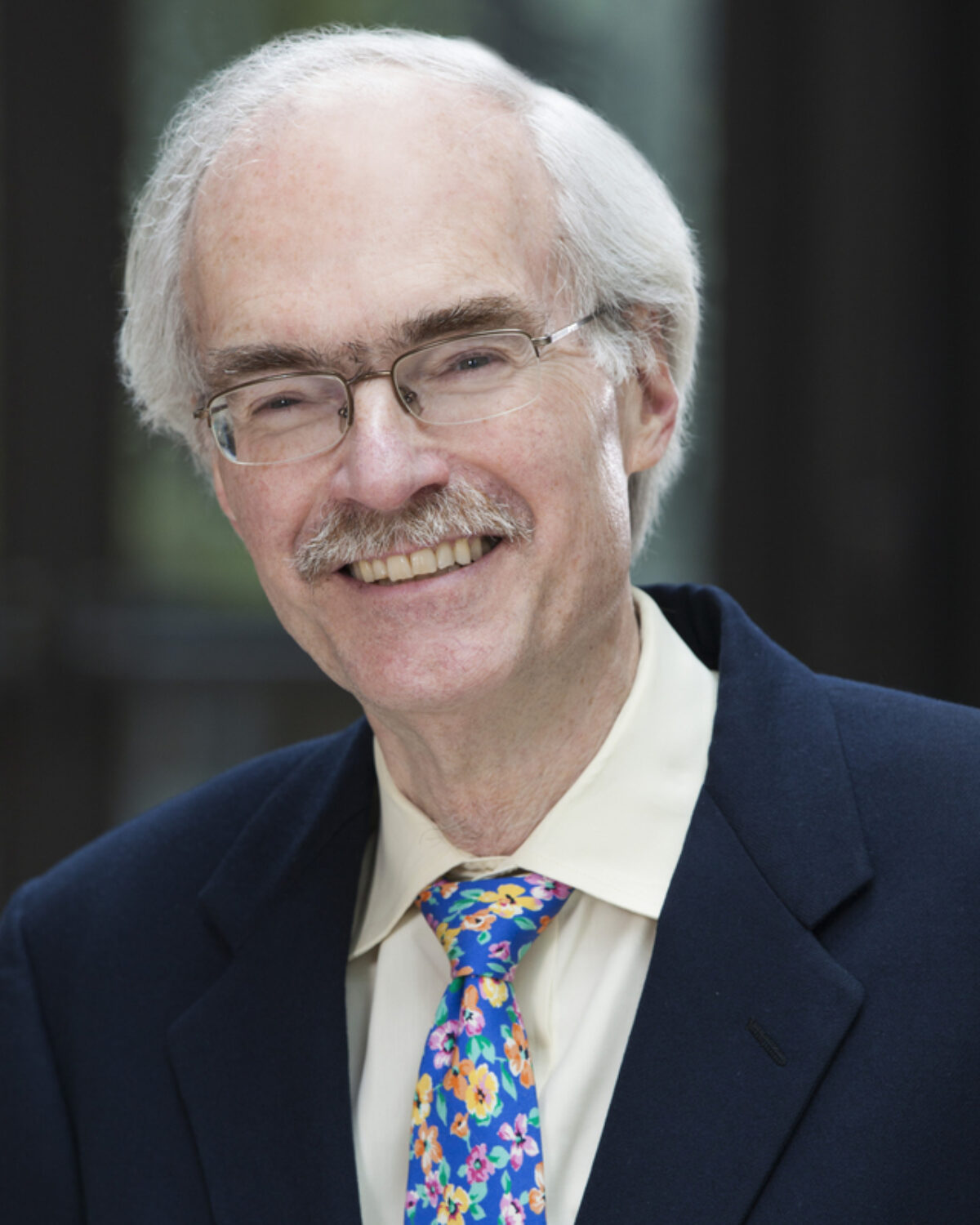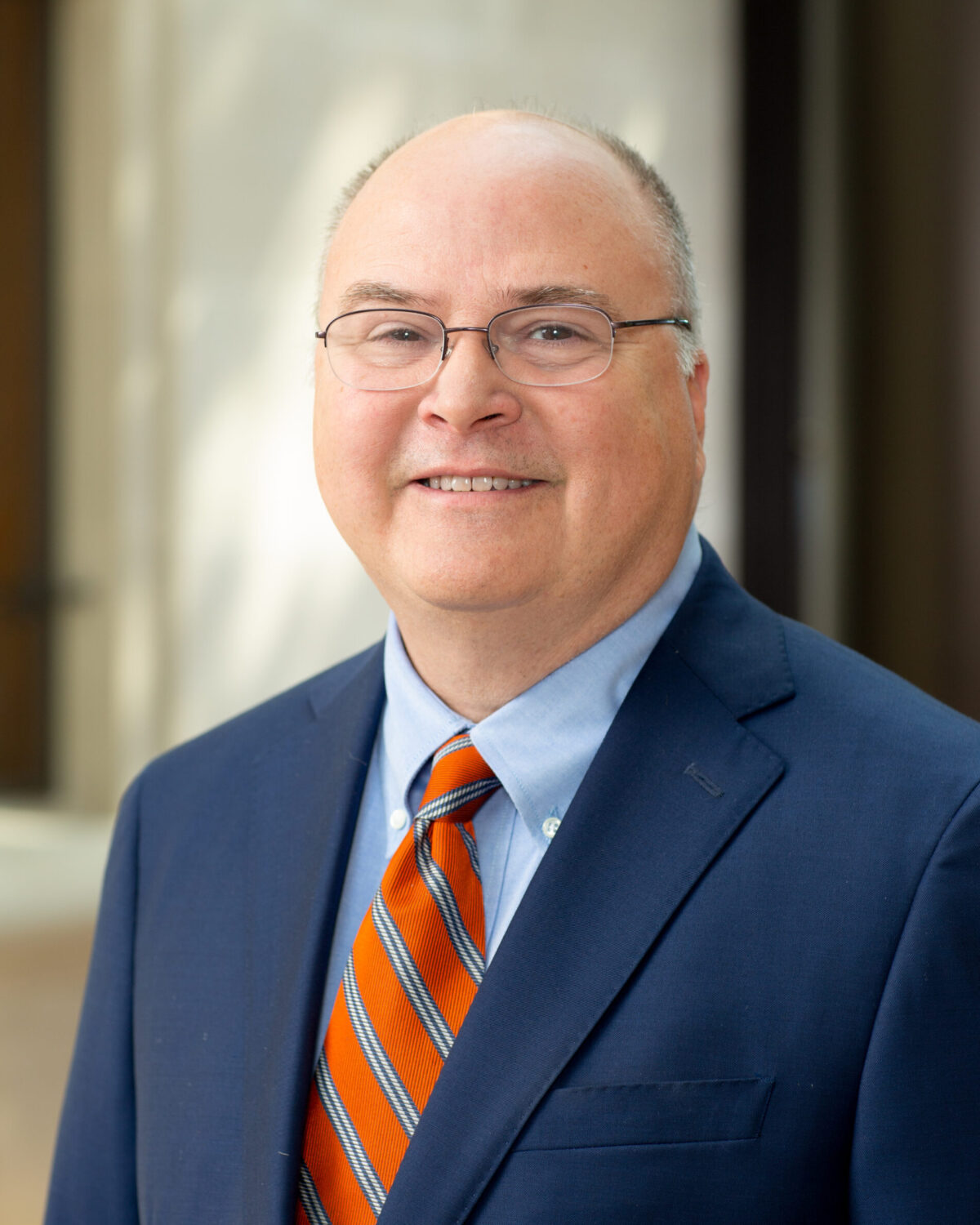Texas Law is celebrating the storied careers of three revered faculty members who retired at the end of the 2022-2023 academic year: Professors Calvin Johnson, Bob Bone, and Scott McCown. Each of them made deep and enduring contributions during their time at the law school.
Calvin Johnson

Johnson is the John T. Kipp Chair Emeritus in Corporate and Business Law. He joined the faculty in 1981 after a substantial career in government, private practice, and the military. His scholarship is wide-ranging; it includes a distinguished book on constitutional history, “Righteous Anger at the Wicked States”. But Johnson’s unquestioned specialty is tax law. He published more than 100 articles in the field and achieved great eminence in it.
Johnson’s signature enterprise is the “shelf project,” which he has been pursuing since 2007. The project consists of dozens of ingenious proposals that Congress would be able to use to increase revenue—more than $3.5 trillion—without raising tax rates. Johnson organized 20 leading tax professionals to work on the project, but the largest number of contributions have been his own.
The project has its name because the proposals are meant to be housed on a shelf within easy reach when Congress needs to generate revenue. The proposals often involve overlooked ways to increase the tax base without a resorting to a rate hike. Johnson has presented his work to the Senate Committee on Finance. The project is ongoing.
“Calvin’s conviction was that we should think and write about things that matter,” said Susie Morse, associate dean for academic affairs and Johnson’s colleague in tax teaching and scholarship, at a recent dinner honoring the retiring faculty. “A proper, fair, old-fashioned, broad-base, low-rate income tax without special deals and exploitable bells and whistles was Calvin’s cause because it was honorable and just.”
Johnson loved classroom teaching. He taught courses on every kind of taxation and on analytical methods. He was especially committed to improving the economic sophistication of his students. Anyone who took a course with him was sure to leave with a firm mastery of the significance and calculation of internal rate of return.
Johnson has been a mainstay in the intellectual life of the school for more than 40 years. He was a reliably stimulating commentator at faculty colloquia. No member of the faculty was and is more ready to engage in high-level give and take on any subject that may be put on the table.
“Calvin’s legacy is immense,” says Dean Bobby Chesney. “His scholarship will have a lasting impact, and so will his influence on our school’s culture. Calvin has always embodied our prized values of fearless intellectual inquiry and warm collegiality.”
Bob Bone
Bone is the G. Rollie White Teaching Excellence Chair Emeritus in Law. He is one of the nation’s leading scholars on civil procedure and has made significant scholarly contributions to the field of intellectual property as well.

Bone joined the law school faculty in 2010 after many years as a professor of law at Boston University. He quickly became one of the most successful classroom teachers at Texas Law, bringing matchless energy to every topic—and there were many of them, ranging from civil procedure to trademark law, game theory, and legal history. Bone inspired many generations of law students. They voted him Professor of the Year in 2013.
In addition to dozens of articles published in top law journals, Bone is author of “The Economics of Civil Procedure,” the leading work on that subject, and has an important new book forthcoming, “Justifying Litigation Reform.” Both books bear the distinctive hallmark of Bone’s writing and teaching: uncompromising rigor joined to a style of exposition that is unusually clear and accessible.
Bone has been one of the leading intellectual lights on the faculty during his time at the law school. With his retirement to Maine, his voice is already much missed. But he recently returned to campus for a delightful celebration and discussion of his new book. A highlight of that event was the chance to hear from leading younger scholars of civil procedure who spoke passionately of the deep influence on their work left by Bone’s ideas and by his personal mentoring and encouragement.
Larry Sager, dean when Bone joined the faculty, commented on his impact on the profession and the school. “A good law faculty needs all kinds of contributions from its various members,” Sager said at the retirement celebration. “You could think of us as an orchestra, with many different parts. The remarkable thing about Bob is how well he does so many things. It’s more like a one-man band.”
Scott McCown

McCown ’79 has had one of the most remarkable careers of any Texas Law alumnus. His first years after graduation were spent in a range of ways that themselves would have made a formidable career: in private practice, in teaching at the law school, and as head of the Criminal Law Enforcement Division of the Texas attorney general’s office, in which capacity he successfully argued a case in the U. S. Supreme Court.
But all this was prologue. In 1989, McCown was elected as a state district court judge in Austin. There he oversaw some of the most significant litigation of his times. McCown presided over challenges to the state’s school finance system, which he held to violate the Texas constitution (the Texas Supreme Court affirmed him). He became the judge reviewing the work of the state’s child protective services, hearing over 2,000 such cases. He was renowned for the compassion and outstanding legal judgment that he brought to all of them. McCown’s stature enabled him to successfully petition the Texas legislature for an additional $200 million in funding for caseworkers.
Professor Steve Goode, McCown’s colleague on the faculty, noted at the retirement dinner that many of McCown’s greatest achievements are out of view. “For all Scott’s many visible accomplishments, his most important ones are things we can never know: all the children who might have become homeless, who might eventually have wound up addicted to drugs or in jail, or who even would not be alive today but for Scott’s profound dedication to children and to public service.”
The next act of McCown’s career was a decade as executive director of the nonpartisan nonprofit Center for Public Policy Priorities (now known as Every Texan). In that capacity he was sometimes described as the conscience of the state of Texas, and Texas Monthly twice named him one of the 25 most powerful people in Texas politics.
In 2013, McCown returned to the law school as a clinical professor and director of the school’s Children’s Rights Clinic. He brought a wealth of experience and provided inspiring leadership.
McCown also taught professional responsibility. Prior Dean Ward Farnsworth speaks warmly of McCown’s contributions. “Scott was and is one of the most valuable and admired members of our community,” Farnsworth said at the retirement dinner. “He epitomized the qualities of mind and heart that we hope to see our students follow by example—the kind of colleague and graduate who makes everyone else on the faculty proud to work here.”
McCown’s retirement is only partial. He’s sitting as a district judge once again on a part-time basis.
